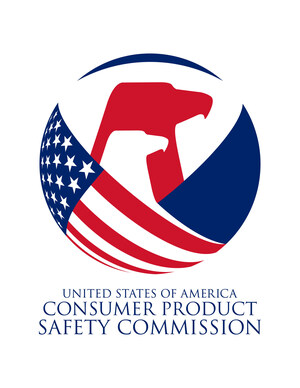
Infant suffocation deaths in slings prompt renewed effort to warn moms and dads
WASHINGTON, Nov. 19, 2010 /PRNewswire-USNewswire/ -- Infant slings and wraps have been used for thousands of years in many different cultures. For many parents across the United States, "babywearing" promotes a positive bond between child and parent. The U.S. Consumer Product Safety Commission (CPSC) wants to make sure that parents and caregivers are aware of important safety information related to the proper use of slings.
(Logo: http://photos.prnewswire.com/prnh/20030904/USCSCLOGO)
CPSC is taking this opportunity to urge everyone to use slings and wraps safely, as CPSC has identified 14 infant suffocation deaths with sling-style carriers over the past 20 years. After reviewing numerous cases, child safety experts at CPSC have determined that parents with infants younger than four months of age, premature, low-birthweight babies, and babies with colds and respiratory problems should take extra care in using a sling, including consulting their pediatrician.
Suffocation/asphyxiation can occur when babies are contained entirely within the pouch of a sling with their face, including nose and mouth, pressed against the adult's body, blocking their breathing. Suffocation can occur within minutes.
Because of the nature of the product and its use, some slings tend to keep an infant in a curled, chin-to-chest position, which can interfere with breathing. When an infant is in the chin-to-chest position, suffocation can occur. Both scenarios are serious concerns to CPSC. Many of the babies who died in slings were twins in separate slings and infants with breathing issues.
CPSC recommends that parents and caregivers:
- Make sure you can see your baby's face or eyes in the sling and that your baby can see you. Also, you should place the baby's face at or above the rim of a sling or wrap so that their face is visible.
- After nursing your baby, change the baby's position in the sling, so that the baby's face is at or above the rim of a sling or wrap and that their face is visible and clear of fabric and the mother's body. You should be vigilant about frequently checking the baby in a sling.
A new voluntary consensus standard for slings is being worked on by ASTM International. This is a positive step toward providing manufacturers with an effective safety standard.
This warning is not intended to characterize all slings as being dangerous to babies. CPSC has identified (1) specific situations that can pose a risk of serious harm to babies, and (2) simple safety tips that we hope the babywearing community can share with new parents.
Photos are available at: http://www.cpsc.gov/cpscpub/prerel/prhtml11/11044.html
CPSC Recall Hotline: (800) 638-2772
CPSC Media Contact: (301) 504-7908
SOURCE U.S. Consumer Product Safety Commission






Share this article